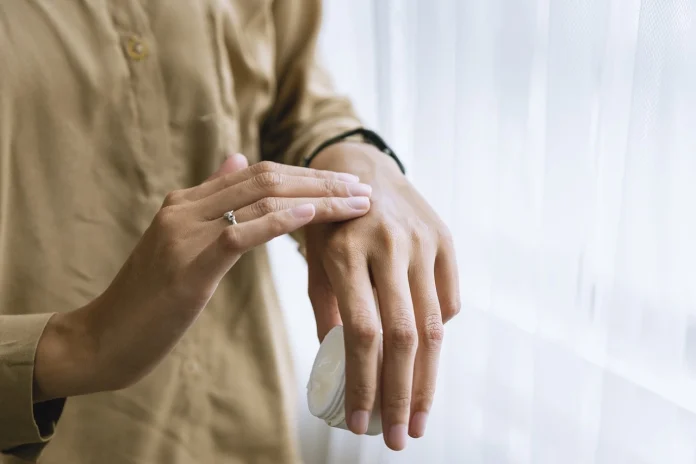In the ever-growing skincare world, it’s easy to get lost and confused about what products are best for your skin.
A product that isn’t going away any time soon however are retinoids. Derived from Vitamin A and proven to visibly reduce wrinkles and boost collagen production, it’s easy to see why this has become a staple skincare item.
Retinoids work by increasing cell turnover. They have antioxidant properties helping your skin fight against extrinsic factors such as pollution and UV rays. It’s important to note when using retinoids that you should wear a high factor sunscreen as your skin will be more susceptible to burning.
Stronger topical retinoids can help fade dark spots and even skin tone as well as lessen acne, making this product an all-round holy grail that you should consider adding to your skincare routine.
So which retinoid should you choose?
Let’s start off with Bakuchiol; A plant-based product that comes from the seeds of the Babchi tree. This isn’t technically a retinoid, but it earns itself a place on the list as it wields similar results.
Pros – This product is suitable for sensitive skin and can be used by pregnant and breastfeeding women. Often used as a stepping stone or an alternative for those who cannot tolerate higher concentrated retinoids.
Cons – It isn’t as strong as other retinoids and can cause skin irritation.
The most commonly heard of retinoid has to be Retinol. This can come in serum, gel or cream form and has now been added to well-known moisturisers. It’s recommended to start off by using a retinol with a lower percentage 1-2 times a week.
Pros – It can help with fine lines and wrinkles. It is widely available in many different forms and concentrations ranging from 0.01% to 2%.
Cons – It can be irritating and cause skin purging for the first 4-6 weeks of use. It can take up to six months to see results.
Retinal, short for retinaldehyde, is retinols stronger sibling. Both are derived from Vitamin A and convert to retinoic acid when applied to your skin. However, retinol first converts to retinal and then to retinoic acid, whereas retinal only has to convert one time to become retinoic acid, making it a faster acting product.
Pros – It is stronger than retinol. It has antibacterial properties which can help with acne and unclogging pores. Some people find it less irritating than retinol.
Cons – It can cause redness, irritation and skin purging.
Tretinoin is a strong prescription only topical retinoid. It was originally used to treat acne; however, dermatologists quickly noticed its anti-aging benefits. It is now used as an anti-aging agent and acne treatment and is widely regarded as one of the more popular retinoids.
Pros – Tretinoin can help with hyperpigmentation, acne, photo damaged skin, fine lines and wrinkles. It varies in strength from 0.025% – 0.1%. It doesn’t need to convert into retinoic acid like retinol and retinal as it is already a retinoic acid, making it a more potent product.
Cons – It can cause peeling, flaky skin and redness. Special care should be taken around sensitive areas such as eyes, nose and mouth.
Isotretinoin, also known as Roaccutane or Accutane, is an acne medication taken orally. It is prescription only and used to treat severe acne. Isotretinoin works by shrinking oil glands and preventing skin cells sticking together so that they don’t block pores. It is also used to help prevent secondary squamous cell carcinoma, a type of skin cancer.
Pros – This is a very effective treatment and can be a life saver for people suffering with severe acne that is unresponsive to other treatments. Effects can be long lasting.
Cons – Side effects include; depression, suicidal thoughts, nose bleeds, dry eyes and birth defects (so cannot be taken when pregnant or trying to conceive).
Help keep news FREE for our readers
Supporting your local community newspaper/online news outlet is crucial now more than ever. If you believe in independent journalism, then consider making a valuable contribution by making a one-time or monthly donation. We operate in rural areas where providing unbiased news can be challenging. Read More About Supporting The West Wales Chronicle




















